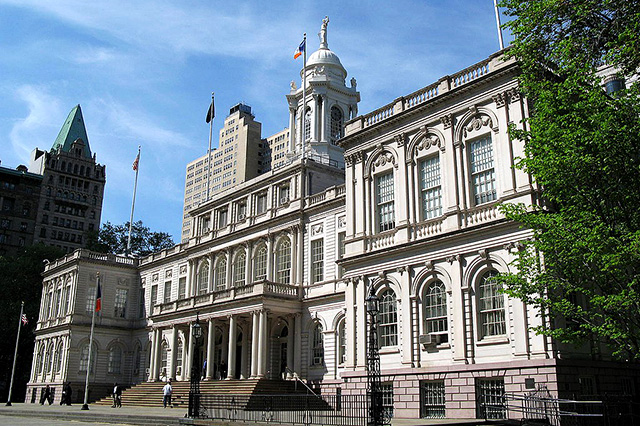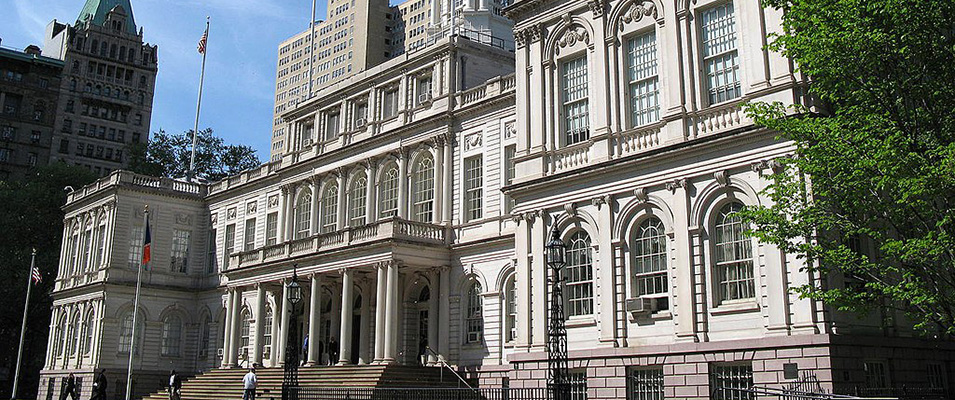By Rachelle Anthony
The New York City mayoral primary is June 22 and early voting is just days away beginning June 12 through June 20. To help voters make their choice, last week WABC-TV hosted the New York City Democratic Primary Mayoral Debate with the eight candidates leading in the race.
It was a heated mayoral debate for the democratic hopefuls after opening statements. The candidates were fired up, interrupting and talking over their opponents and moderators while trying to reel in voters on the topics of crimes, including anti-Semitic and anti-Asian hate crimes, gun violence, defunding the police, stop and frisk, the economic crisis, the homeless problem, and education.
In the candidates’ opening statements New York City Comptroller Scott Stringer said, “I’m going to institute real affordable housing and ensure we have universal child care.”
Brooklyn Borough President Eric Adams said, “I’ll create a city where we will raise healthy children and families and a safe affordable city.”
Businessman and politician Andrew Yang made a case for fresh faces. “We can’t expect the same people who’ve run our city into the ground these past years to then turn around and solve tomorrow’s problem,” he said. “We need change and a fresh start.”
Maya Wiley, a lawyer, professor, civil rights activist, and former counsel to Mayor Bill de Blasio, said she wanted to end street homelessness. “We can make sure that every last person can be safe from police violence; remake our city so that it’s safe and fair and a great place to live,” said Wiley.
“We can build a new New York City together,” said Dianne Morales, a former nonprofit executive.
Raymond (Ray) McGuire, a businessman and former Citigroup executive, turned towards his opponents. “All of my opponents have been here in government for decades,” he said. “They have failed to fix any of the problems that are most important to you. Make the change, vote for the change. I’m a leader, I’m Ray Maguire.”
Shaun Donovan served as a member of Barack Obama’s cabinet and as a former commissioner for NYC Housing under the Bloomberg administration. He also vowed change. “I will lead New York in a new and better direction,” said Donovan.
Kathryn Garcia, a former Sanitation Commissioner, said “I’m the only person on the stage who will be able to deliver on every promise she makes.”
The first question to the candidates was, “How do you fight crime and defund the police at the same time?” Adams, a former police officer, said “We have to stop the flow of guns into our community.” Gun violence has increased in New York City which all the candidates said was concerning and they discussed the need to stop the flow guns into the city. “We have gone from a pandemic of Covid to an epidemic of gun violence,” said Garcia. Crime in the subway and anti-Asian hate crimes have surged throughout the city. Some candidates want mental health professionals in the subway and elsewhere to combat these crimes instead of police as well as supportive housing for those struggling with psychological issues.
Stringer and Adams clashed on the topic of stop and frisk. Stringer said it could lead “back to the Giuliani days of stop and frisk,” in response to Adams’ plan to reinstate the controversial practice. “It’s over-policing in communities of color,” said Stringer. “We can no longer respond to mental health complaints with over-policing. We need mental health providers and experts.” Adams, in his defense said, “I fought against stop and frisk for 22 years when I wore the uniform.” Stringer further elaborated that “a badge and gun first and ask questions later,” was Adams’ proposal.
While Maguire and Yang believe defunding the police is not the right approach, Morales said she was in favor of it. “The government has fundamentally failed to provide housing security, food security, economic security, and access to health care,” she said. “If we actually provided jobs to these young people and economic stability to our communities, the violence that we’re witnessing would be dramatically decreased.”
New York City was hit hard by the pandemic and resulting economic crisis. Asked how they would rebuild the city, Yang and Adams emphasized safety. “There won’t be an economic recovery if we don’t make are streets and subways safe, and get street homelessness down,” he said. Donovan, Stringer and Wiley said that investing in small businesses and creating jobs would rebuild the city.
“I have a plan,” said Maguire. “The largest most inclusive comeback plan in the history of New York City, 500,00 jobs. Go big, focus on infrastructure. Go small, 50,000 in our small businesses. Go forward to make sure the MWBEs, (minority women-owned business enterprises), get included. And invest in technology and workforce vocational training and skills.”
Morales said it was time to end corporate bail outs and welfare. “Prioritize investing in our small and midsize businesses and prioritize our communities rather than prioritizing corporations,” she said.
The candidates defended themselves on a variety of topics. Stringer, for the loss of voter support due to the sexual harassment accusations against him, which he denied. Maguire, for his lack of government experience. “Look at those who have had decades of government experience and what has that done for us now,” said Maguire. “I’ve managed budgets and has been held accountable for them, with some budgets larger than most state budgets.”
Yang defended himself for not voting in New York City’s mayoral elections and for the backlash he received about his Venture of America program and his promise to create 100,000 jobs, which Wiley said he failed to do. “Venture for America created thousands of jobs around the country and operated in several states,” said Yang.

New York City Hall
The candidates addressed schools and what’s best for students and teachers. Morales pointed out inequalities in the charter school system. “We need to prioritize and focus on improving the quality of our public school system,” said Morales. “We cannot continue to diverting public funds into charter schools that do not work to meet all their educational needs. We need to focus on our public school system and strengthen and improve the quality of our public school system so our families do not feel they need to resort to charter schools.”
Garcia said she would increase funding in public schools. “I would move $130 million into classrooms and fund 140 schools, and there would be art, music, sports and theater,” she said. Maguire said the entire education system needed transformation. “We need the best district schools, charter schools, magnet schools and parochial schools,” he said.
Donovan said he wants students in high school to be exposed to the workforce. “Every high school student should have one paid internship or apprenticeship,” said Donovan.
Wiley, Stringer and Morales shared the same views on additional assistance for teachers and students.
“A resource center and hub for teachers and administration to learn best practices,” said Wiley.
“Two teachers in every classroom K-5 and afterschool programs,” said Stringer.
Morales said students could make up lost time in 2020 by using the city as a classroom. “We should be partnering with our community based organizations, our arts and cultural institutions and businesses and begin to expose our children to the world so that they can begin to make active choices about their career pathways,” she said.
For the undecided voters, this two-hour debate hopefully helped them make their choice for the June primary election. Ranked choice voting in New York City’s primary election allows voters to rank candidates by preference. Also on the ballot are candidates for public advocate, comptroller, borough president and councilmember. Republican candidates include Curtis Sliwa, founder of the Guardian Angeles, and Fernando Mateo, a small business owner.



